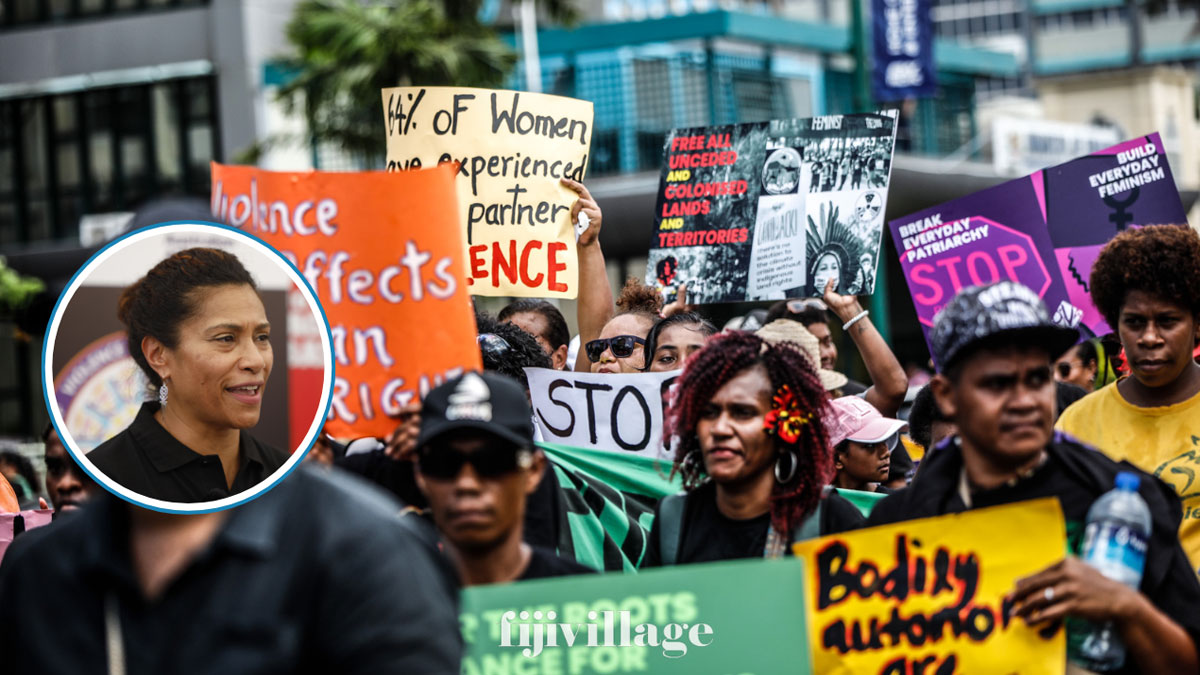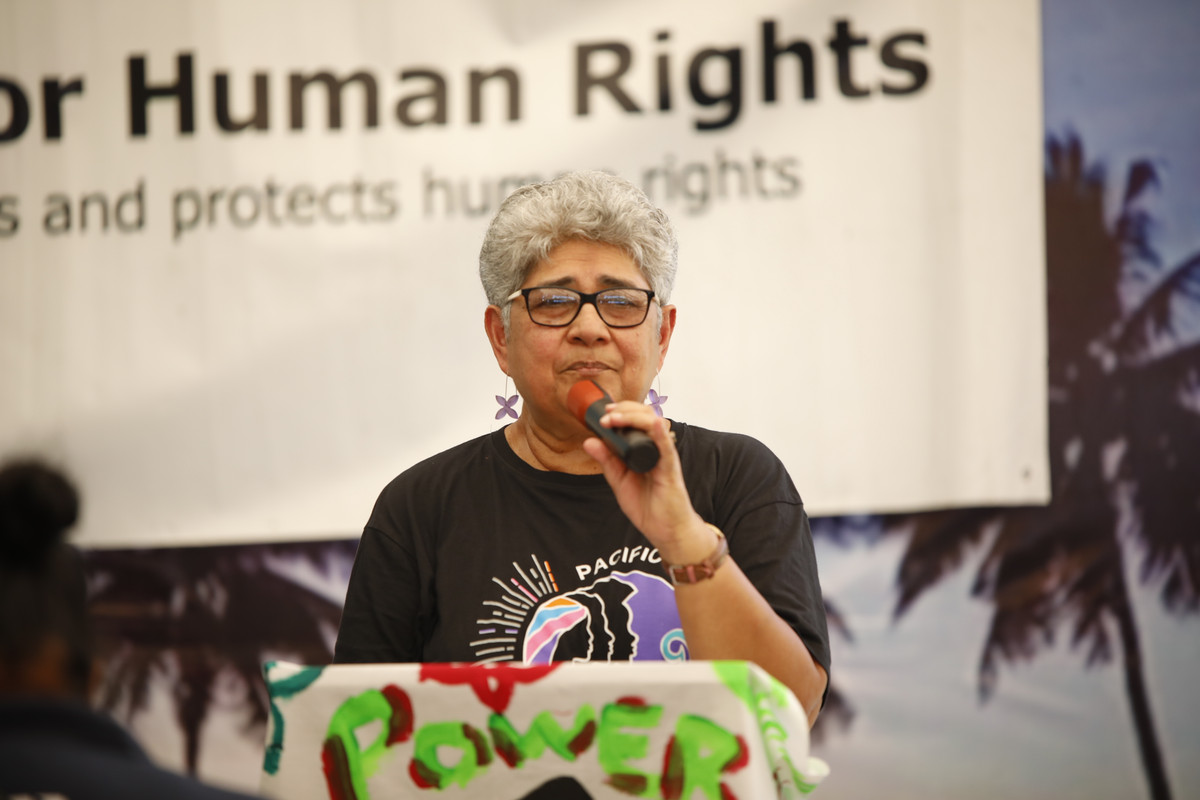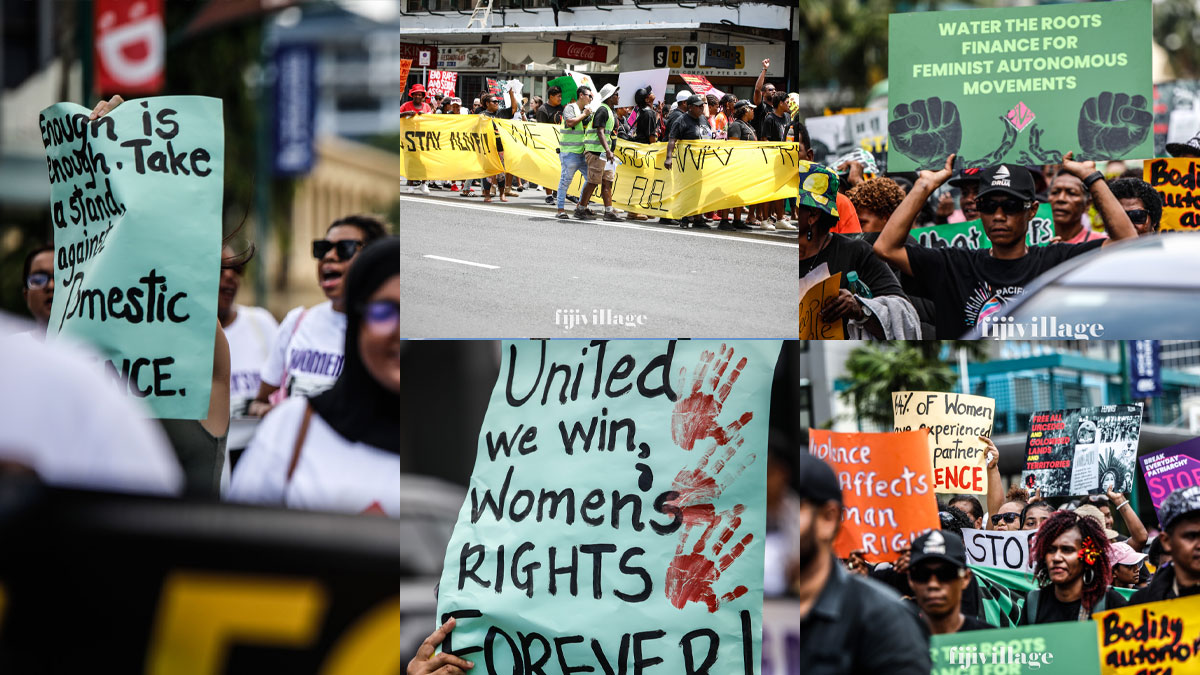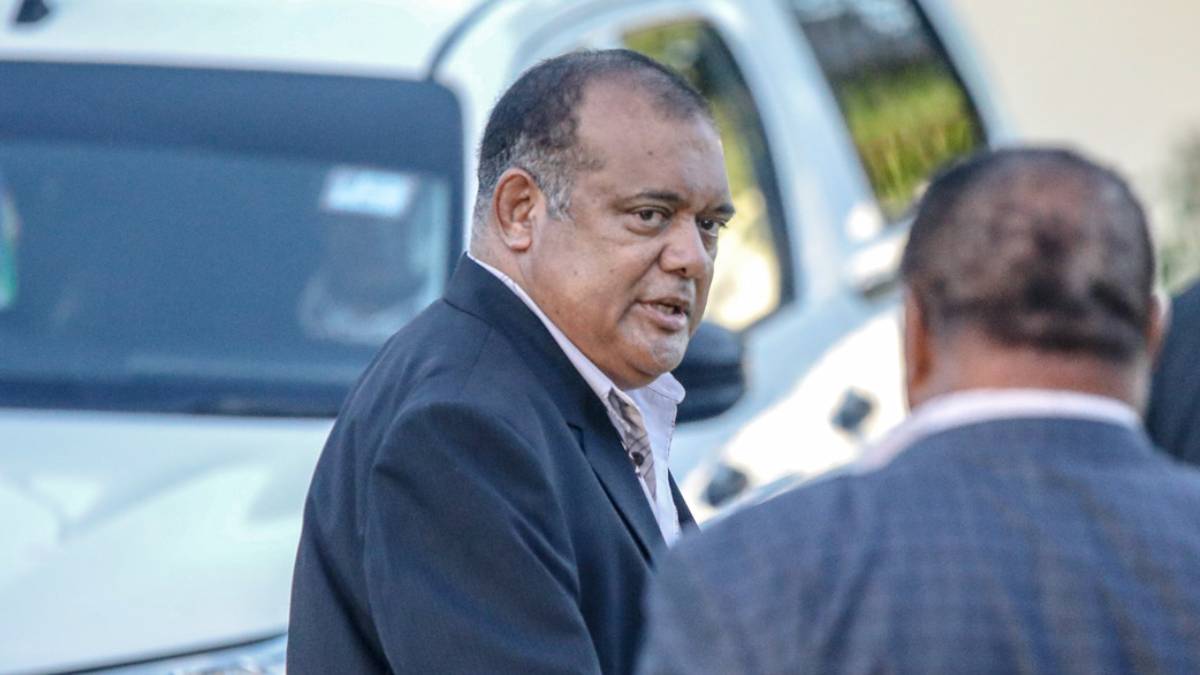
There are still people in this country who are not safe in their own homes, especially women, girls and children as they are hungry, homeless and treated differently because of their race, gender or social status, and they are not free because of that.
This has been highlighted by NGO Coalition on Human Rights Chair, Shamima Ali while speaking during World Human Rights Day at the Suva Bowling Club following a march in Suva City.
More than 100 people from organisations including Fiji Women’s Crisis Centre, DIVA for Equality, Ministry of Women, Children and Social Protection, Social Empowerment and Education Program, Fiji Women's Rights Movement, Pacific Feminist Sexual Reproductive Health Coalition, Pacific Network on Globalisation and Human Rights Commission Fiji took part of the march.
She says despite the high prevalence of violence against women and girls in Fiji; survivors often do not receive justice, and perpetrators are too often granted impunity for their crimes.
She says this year's theme for Fiji these is 'Ending all Forms of Violence, Justice for Women and Girls, Ending Impunity."
She says impunity intensifies the powerlessness of the targets of violence, but also sends a message to society that male violence against women is both acceptable and inevitable.
Ali further says that they are also concerned that there continues to be government restrictions on freedom of expression and assembly through the arbitrary application of the Public Order Amendment Act, which should have been changed by now. The NGO Coalition Chair asks how can we do that when we do not demand peace in other countries, our own homes, the region, our neighbours - Kanaki and West Papua, particularly.

She says all over the world people are marching for peace and are calling for a cease fire and an end to genocide, but not in Fiji, where it appears that the government's pro-Israel stance has influenced what is supposed to be an objective permit application review process while compromises continue to be made with Indonesia and France, despite the appalling and atrocious violence and occupation of the indigenous people of West Papua and Kanaki.
She also says that nepotism and cronyism remain rife with this government - with party supporters given positions with no regard for merit, diversity and representation.
Ali says that misogyny against certain women leaders is rampant with wild sexism and online bullying.
She says the rule of law is undermined as the perception is that some people are treated as above the law and principles of good governance are violated while personal and collective security and safety of minority ethnic and religious groups is being compromised through online hate speech with no action being taken by the coalition government.
Ali says in fact, some of our leaders do this with impunity.
She says developments are being proposed without consent, Fiji's healthcare system has failed, especially for our women and girls, whose healthcare needs or reproductive rights are often overlooked, politicians gave themselves salary and benefit increases given the country's high national debt and there are high incidence of poverty, where 400,000 Fijians are living below the poverty line.

She says water is a basic human right but we do not have water for weeks and there are people who haven't had water for years in the places where Fijian families face regular water disruptions and the urgent need to pay our workers a wage to cope with increasing cost of living and ensure dignity in the workplace.
Minister for Women, Children and Social Protection, Lynda Tabuya says she is listening and has acknowledged the leadership of women's rights organizations who continue to rise up.
She says it been years of rising up that continues to hold government accountable, including her, in terms of what needs to be done to ensure that we continue to realize our human rights in Fiji.
She says building allies within government will hopefully move the need just a little bit, but it's moving in the right direction.
The Minister says she can sit and be told everything that the government is doing wrong in government, but she cannot assure that others in government will take it the same way as well.
She adds the government cannot cannot fix the health system, and prevent violence on their own.
Tabuya also highlighted that they are not using the petitions avenue in Parliament as they have not had a petition since they came into government.
She is urging the NGOs to get their petitions into parliament.
Stay tuned for the latest news on our radio stations

